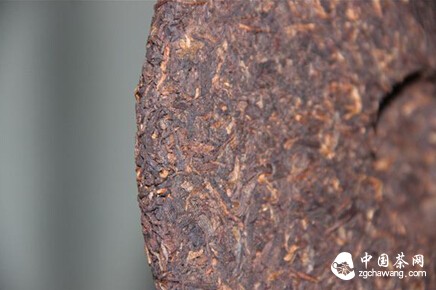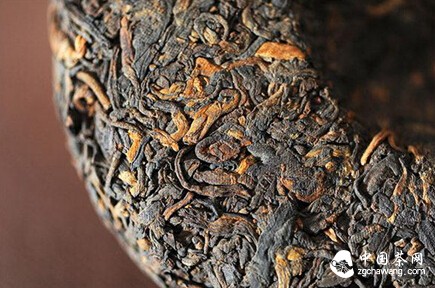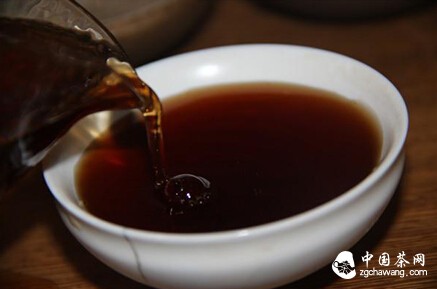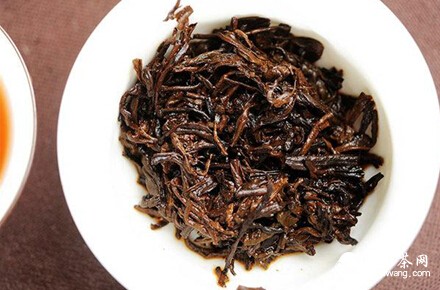
Picture: 2006 Ripe Tea Cake
The previous issue discussed the difference between new and aged raw tea. This issue focuses on the difference between new and aged Pu-erh "ripe tea". Compared to raw tea, ripe tea has a unique flavor. Newly made ripe tea and aged ripe tea differ in tea nature and taste. For the specific differences between new and aged "raw tea", you can also add my WeChat (dydy800) to communicate or check.
New Tea: Refers to tea that has been stored for 1-5 years after being made into maocha (rough tea).
Aged Tea: Tea that has been stored in a dry warehouse for more than five years.
Appearance: It is very difficult to see the difference between new and aged ripe tea; they are almost identical.

Picture: 2012 Ripe Tea Cake
Taste: The biggest difference between new and aged tea lies in the 'wo dui' (fermentation pile) smell. Newly made tea, having undergone the wo dui process, has a strong, pungent wo dui smell, not very pleasant, similar to a seafood odor. After aging for two or three years, the wo dui smell gradually dissipates, transforming into the unique, clean, sweet aroma of ripe tea.
Newly pressed tea will have a relatively heavy 'water taste' for about three to four months. The liquor of new ripe tea does not fully exhibit thickness and smoothness, whereas aged tea shows better performance in terms of a thick, mellow, and smooth liquor. Aged tea often has a 'chen xiang' (aged aroma), similar to the scent of clean wood in an old house, which smells very comfortable.

Liquor Color: There is little difference in the liquor color between new and aged ripe tea. Tea stored well in a dry warehouse for over ten years will have a brighter, more translucent liquor. Both new and aged ripe tea have a chestnut-red or wine-red liquor, appearing viscous and rich.
Wet Leaves: For ripe tea produced using moderate fermentation technology, the leaves of new tea are still quite elastic; they are not easily crushed when rubbed between fingers, and one can feel the toughness of the leaves. The leaves of ripe tea aged over ten years are softer, easily crushed with a finger, and have poor toughness.

Tea Nature: New tea has a 'hot' nature, while aged tea has a 'warm' nature. Drinking too much newly made ripe tea can easily cause internal heat (上火 - shàng huǒ). Aged ripe tea is more moistening, gentle, and comfortable.
Efficacy: New and aged ripe tea share the same health benefits: warming the stomach, weight loss, lipid reduction, preventing arteriosclerosis, preventing coronary heart disease, lowering blood pressure, anti-aging, anti-cancer, lowering blood sugar, inhibiting bacteria and reducing inflammation, and reducing smoke toxicity. They are particularly outstanding in warming and strengthening the stomach and preventing the 'three highs' (high blood pressure, high blood sugar, high cholesterol), making them suitable for long-term consumption by middle-aged and elderly people.
If you have a constitution prone to internal heat, drink less new ripe tea during spring and summer. Ripe tea warms the stomach and dispels cold, making it especially suitable for drinking in autumn and winter. Newly made ripe tea is suitable for tea friends with a constitution leaning towards cold, as it can help with regulation. Aged ripe tea has basically no side effects, is suitable for all ages, young and old, and has relatively strong health benefits.
Text/Dong Yue (Founder of Nanming Jiaren, Senior Tea Artisan, Personal WeChat: dydy800) The "Dong Yue Talks Tea" series of articles are now synchronously updated on well-known websites such as Sohu, Jinri Toutiao, Shuocha Wang, Zhongguo Cha Wang (China Tea Net), and Banxia Tea Net.
Related links: Golden Flower Fu Brick Tea Golden Pearl Pu-erh